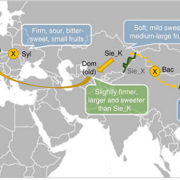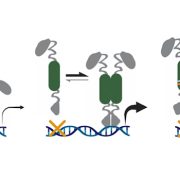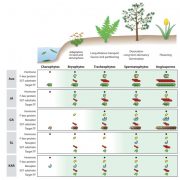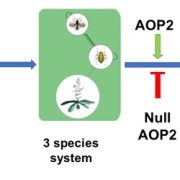De novo origins of multicellularity in response to predation (Sci Reports)
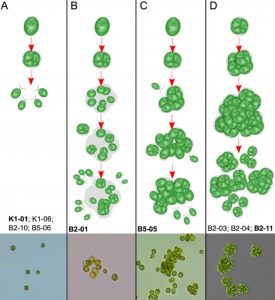 Multicellularity has evolved independently many times in eukaryotes (e.g. land plants, fungi, animals). Predation is one driver that is hypothesised to lead to this evolution from unicellular ancestors. Here, using evolution experiments, Herron et al. demonstrate that the unicellular green algae Chlamydomonas reinhardtii develops multicellular structures under selective pressure of the predatory filter feeder Paramecium tetraurelia. These developments that evolved over approximately 750 generations are shown to be heritable after four years in the absence of a predator. The multicellular phenotype provides a fitness benefit because these algae increase their body size becoming less susceptible to predation. Comparisons with similar studies in other unicellular organisms indicates that predation is an ecologically viable selective pressure that could explain the origins of multicellularity (Summary by Alex Bowles) Scientific reports 10.1038/s41598-019-39558-8.
Multicellularity has evolved independently many times in eukaryotes (e.g. land plants, fungi, animals). Predation is one driver that is hypothesised to lead to this evolution from unicellular ancestors. Here, using evolution experiments, Herron et al. demonstrate that the unicellular green algae Chlamydomonas reinhardtii develops multicellular structures under selective pressure of the predatory filter feeder Paramecium tetraurelia. These developments that evolved over approximately 750 generations are shown to be heritable after four years in the absence of a predator. The multicellular phenotype provides a fitness benefit because these algae increase their body size becoming less susceptible to predation. Comparisons with similar studies in other unicellular organisms indicates that predation is an ecologically viable selective pressure that could explain the origins of multicellularity (Summary by Alex Bowles) Scientific reports 10.1038/s41598-019-39558-8.



